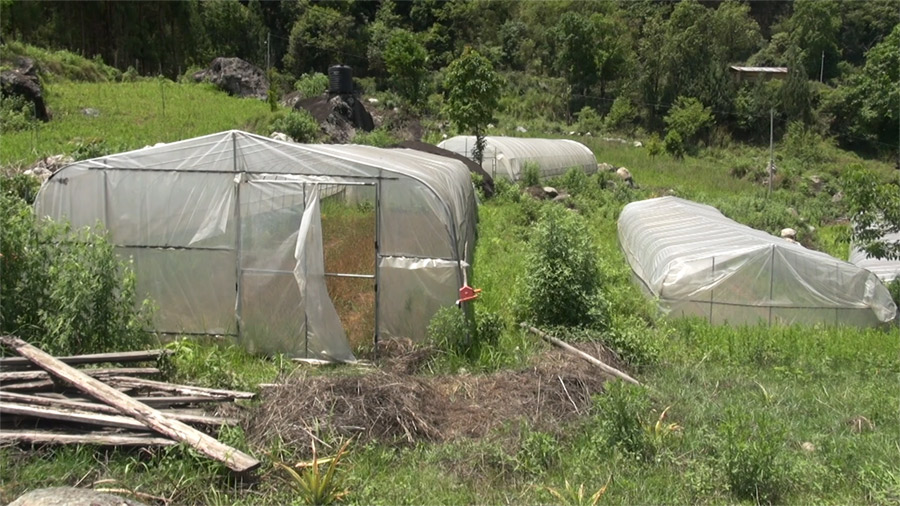
Since 2019, the Chudawong commercial vegetable farm in Trashigang’s Radhi Gewog has been running successfully until recently. Three groups of farmers cultivate various types of vegetables throughout the year. But it has been about four months since the farmland remained barren due to damaged water supply pipeline and fencing.
Today, the 16-acre farmland is mostly covered with bushes. The greenhouses remain empty.
The water supply pipeline was washed away last monsoon and could not be restored.
Similarly, solar fencing poles have collapsed. Wild animals have damaged around 17,000 pineapple plants, which were ready to bear fruit.
“We supplied water using a pump for almost three years. It has benefitted us. However, in August last year, the Yudari stream damaged the pipeline and without water, we could not grow anything in the greenhouses. Vegetables cannot grow well without water, so we could not cultivate anything after the water supply pipeline was damaged,” said Tenzin Jamtsho, one of the farmer’s group leaders.
“The solar fencing down there was carried out some four years ago. Out here, the solar fencing is functional for now, but wild boars and porcupines are entering the fields. We would be grateful if a chain link fencing is provided,” said Choening Zangmo, a farmer’s group leader.
“We are facing water problems and wild animals are destroying our crops. We are facing a problem as we have to pay a minimal amount to the public. The members are not happy as they are not able to earn good income but have to pay fees. So, the farming situation has become worst these days,” said Kinzang Yeshi who is also a farmer’s group leader.
The Trashigang District Administration says that they have identified a new water source to provide a reliable water supply. Officials have also visited the farmland and are exploring ways to provide fencing.
The district administration is also going to conduct consultation meeting with the public to revive the commercial vegetable farming land.
The Commercial Agriculture Resilient Livelihood Enhancement Programme or CARLEP invested nearly nine-million-ngultrum to develop the farmland, supply water, install greenhouses, and provide fences and seedlings.
There are 27 farmers working on the farmland.
Sonam Darjay, Trashigang
Edited by Tshering Zam






